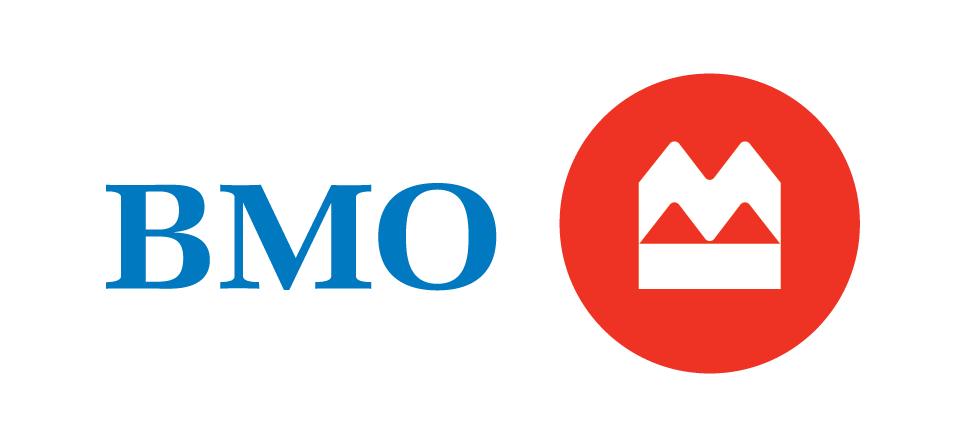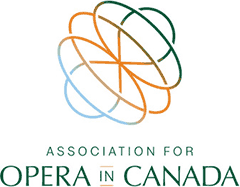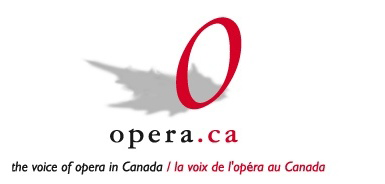Sep 25, 2025
Q & A with Executive Director Michael Blais
Get to know Manitoba Opera’s new executive director Michael Blais in this Q & A about his work with the company, his journey to arts administration and what he sees ahead for Manitoba Opera.
Q: Where have you worked previously?
A: Prior to being appointed executive director, I served as director of administration, and before that, I was the box office coordinator. I joined the company when we brought our ticketing service in-house. It was a strategic decision at that time aimed at deepening patron relationships and enhancing the audience experience.
Before transitioning into arts management, I worked as a professional contemporary dancer. It feels like a lifetime ago, but that work remains close to my heart.
Q: What led to your interest in arts management?
A: Even during my time as a dancer, I knew I would eventually find my way into administration. I was fascinated by the complexity and coordination required to manage an arts organization. Once I began working in administration, I discovered how rewarding it is to support artists from behind the scenes. Each season brings new challenges, and I thrive on the variety of roles and responsibilities I have within the company.
Q: Do you play an instrument or have an artistic interest of your own?
A: I studied piano and voice as a child and young adult, and I returned to piano in my thirties. It’s been an on-and-off relationship over the years, but when I retired from dancing, I made a conscious decision to draw a fairly hard line under my artistic practice. Arts management has proven to be creatively fulfilling enough for me.
Q: What do you see are the company’s biggest challenges?
A: I’ve seen our challenges evolve over time. Right now, post-pandemic recovery remains a central focus, with rebuilding and expanding our audience base as a top priority. Adding to the complexity is a funding environment that continues to place pressure on the sector. Public support has remained relatively stable but hasn’t kept pace with inflation or the growing needs of arts organizations. Together, these factors contribute to a challenging landscape where attracting and retaining skilled administrative staff is becoming increasingly difficult.
Q: What do you feel are Manitoba Opera’s greatest strengths?
A: I would say our strongest asset is our relationships with our artists, our patrons and donors, and with all our peer and partner organizations. These connections are the foundation of everything we do.
Another asset is the organization’s commitment to excellence. It runs through every level of the organization, and despite the challenges we face, I think we consistently exceed expectations.
Q: What has been the most significant recent change for the company?
A: The most significant recent change was initiated by the organization. With Larry Desrochers, our longtime general director & CEO stepping down in May 2026, the company has made the decision to move to a dual leadership model, separating the artistic director and executive director roles into two positions. It’s the most substantial structural change we’ve made in many years, and it opens the door to exciting new possibilities. Although we approach change carefully and methodically, with a keen eye on the associated risks, I believe the coming years will bring more opportunities for the creation of new work and more community-focused programming.
Q: So much has changed in the classical music world in the past few years. What are you hoping to see happen with the company over the next five years?
A: I’d love to see more investment in new work and in telling stories that really reflect the diversity of our community. I hope we can grow programs like Opera Access, or come up with new ones, that break down barriers and create more ways for people to connect with opera. There’s no denying the financial pressures in the sector, but with solid management and smart partnerships, I think we can keep growing our impact and continue supporting both our artists and our audiences.
On the administrative side of things, I hope that we can fully capitalize our endowment fund. We’re just under 5M right now, and the goal of a 10M endowment will provide the organization with a revenue stream to address the structural deficit that exists in too many arts organizations. At the end of the day, I just want to see the company keep creating artistic experiences that truly resonate with people.
Q: Maintaining and building a loyal audience is challenging. What is your philosophy with regards to audience growth in the current climate?
A: Audience building is a top priority for us. We’re still navigating recovery from the pandemic, and it’s a complex landscape. Audience demographics are shifting, and consumer behaviours are changing. While challenging, they also bring new opportunities. Our Opera Access program, which provides complimentary tickets to a variety of social service agencies and reduced socio-economic barriers to attendance, is a good example of this. With unused capacity in the hall, we saw this as an opportunity to enhance our service to the community. We’ve been able to expand this program alongside efforts to grow our paid audience. Some of these tickets are now underwritten through sponsorships. The goal isn’t to convert recipients into buyers; it’s about broadening our reach and deepening public value. In doing so, we hope to cultivate long-term appreciation for the art form and maybe change some perceptions about the art form along the way.
Q: What are you most looking forward to in your first season as executive director?
A: Our season-opening production of Tosca. It was the first opera that really resonated with me, and I still love it to this day. It also happens to be the first fully staged production I worked on when I joined the company in 2010. We’re using the same set that we used back then from Seattle Opera. It’s a beautiful set with these gorgeous hand-painted backdrops. It all feels very full circle in a lot of ways, and I’m looking forward to experiencing it again through the lens of my new role.






